By Jill Habig, PRP Founder and CEO
Civil Rights March on Washington, D.C., Marchers at the Lincoln Memorial, August 28, 1963
Today, as we celebrate the life and legacy of Dr. Martin Luther King Jr., I’m reflecting on what leadership means in moments like this.
There’s a lot to admire about Dr. King, one of the most prominent leaders of the civil rights movement. He saw the clear connection among civil rights, racial justice, and economic justice. Specifically, Dr. King knew that people, especially Black people, could never enjoy full citizenship without economic security.
As the leader of an organization fighting for civil rights, I also see how closely these issues are intertwined. Civil rights are essential for a healthy democracy, but it’s extremely difficult to achieve your dreams if you can’t access safe housing or earn a living wage. Unfortunately, nearly 60 years after the war on poverty, nearly 37 million people in the U.S. still experience poverty. These inequities are worse for Black, Indigenous, and other people of color.
This is unacceptable. We have to do better, even when the odds are against us. I know we’re all dreading what else is happening today. History has shown what the initial days of a Trump administration looks like: sweeping unconstitutional executive orders, harmful policies, and aggressive attempts to sow fear and confusion. The second Trump administration is even more prepared to threaten our democracy, as we’ve seen with Project 2025.
But we’re ready, too. PRP was built for this moment. Our mission is to help local government partners fight for civil rights. Our theory of change is that local officials can play a vital role in ensuring their communities thrive when we invest in their skills, capacity, and leadership. That’s why we’re launching the Civil Rights Hub and created the Civil Rights Fellowship, and it’s why we’re continuing the Election Protection Hub and our investments in training local officials.
Let’s be clear: it will be tougher. Over the next four years, cities and states will continue to be on the frontlines fighting for our most basic rights and freedoms, from abortion access to voting rights to LGBTQIA+ rights. They need reinforcement, and that’s where PRP comes in. Our work will entail distinguishing between legitimate threats requiring immediate legal action from the bullying and bluster intended to intimidate us.
Guided by our vision and values, we will stand firm to protect the highest ideals of what our country stands for. We will be deliberate and strategic, focusing on where our resources, expertise, and network can have the most impact. We will take legal actions that can prevent, minimize, and delay the impact of harmful policies on our partners and the communities they serve. We will support cities and counties in using their collective power to resist federal overreach, leveraging the tools and tactics that proved effective during Trump’s first term.
Change is possible. Even a small group of dedicated, dynamic people, with enough will and passion, can have a huge impact. And in communities across the country, elected officials, government attorneys, and other unsung heroes are fighting together to make people’s lives better.
Now more than ever, we must band together and continue to hold power accountable. As we navigate the chaos and discord, we must also temper our urgency with patience. That’s a lesson I drew from Dr. King and the civil rights movement of the 1960s. The fight for civil rights won’t be (and has never been) won overnight. There will be setbacks, but with persistence and hope, we will bend the arc of the moral universe toward justice.
I’m reminded of a story about Thurgood Marshall. When he was fresh out of law school in 1935, he took on a client, Donald Murray, who was denied admission to the University of Maryland Law School because he was Black. Marshall filed a short petition in Baltimore City Court. In just six pages, he challenged nearly a century of precedent. That bold action lit a fire that burned through segregation in America, culminating in multiple civil rights wins during the 1950s and ’60s.
With the work of that era at risk, today is about lighting a new fire. Despite the difficult times ahead, I remain hopeful for the future. Time and time again, our network of local government partners has risen to meet challenges. Together, we can build a multiracial democracy that delivers equity and justice for all people.
Jill Habig
CEO and Founder
Public Rights Project






